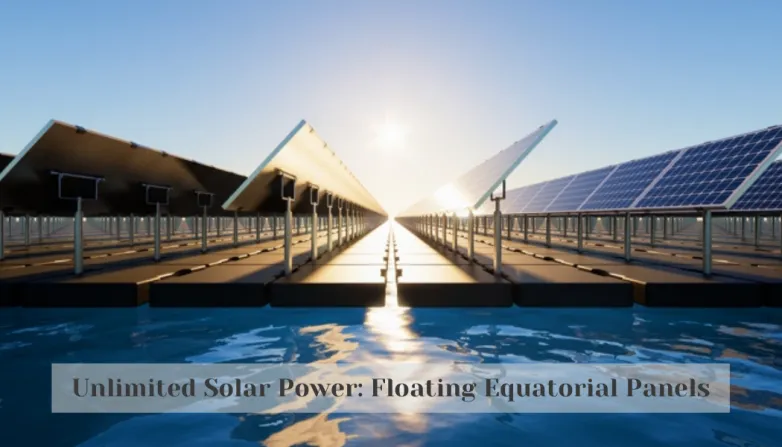Unlimited Solar Power: Floating Equatorial Panels
- Floating solar panels could provide unlimited renewable energy to densely populated countries in Southeast Asia and West Africa, potentially powering a billion people by 2050. Our research shows Indonesia and Nigeria have the highest potential for offshore solar arrays, due to their maritime areas and equatorial environment.

Floating solar panels could provide a virtually unlimited supply of renewable energy to densely populated countries in Southeast Asia and West Africa. By mid-century, 70 square kilometers of solar panels could provide enough energy for a fully decarbonised global economy, supporting 10 billion affluent people. Our research found that Indonesia and Nigeria have the highest potential for offshore floating solar arrays, with 140,000 and 6.4 million square kilometers of maritime area respectively.
The region of 5-12 degrees of latitude near the equator is the most suitable for offshore floating panels, as it has low winds and wave heights, high population density, and intact ecosystems. Despite challenges from salt corrosion, marine fouling, and shallow seas, floating solar panels could be a major part of the energy mix for countries with access to calm equatorial seas. By 2050, a billion people in these countries could be relying mostly on solar energy, making it the fastest energy change in history.
What Potential Does Offshore Floating Solar Panels Have for Countries in Southeast Asia and West Africa?
- Offshore floating solar panels could provide an unlimited supply of renewable energy in Southeast Asia and West Africa by mid-century.
- Indonesia and Nigeria have the highest potential for offshore floating solar arrays due to their large maritime areas.
- The 5-12 degree of latitude near the equator is the most suitable for offshore floating panels, due to its low winds and wave heights, high population density, and intact ecosystems.
- Despite the challenges from salt corrosion, marine fouling, and shallow seas, floating solar panels could be a major part of the energy mix.
- By 2050, a billion people in these countries could be relying mostly on solar energy, making it the fastest energy change in history.
Also read

